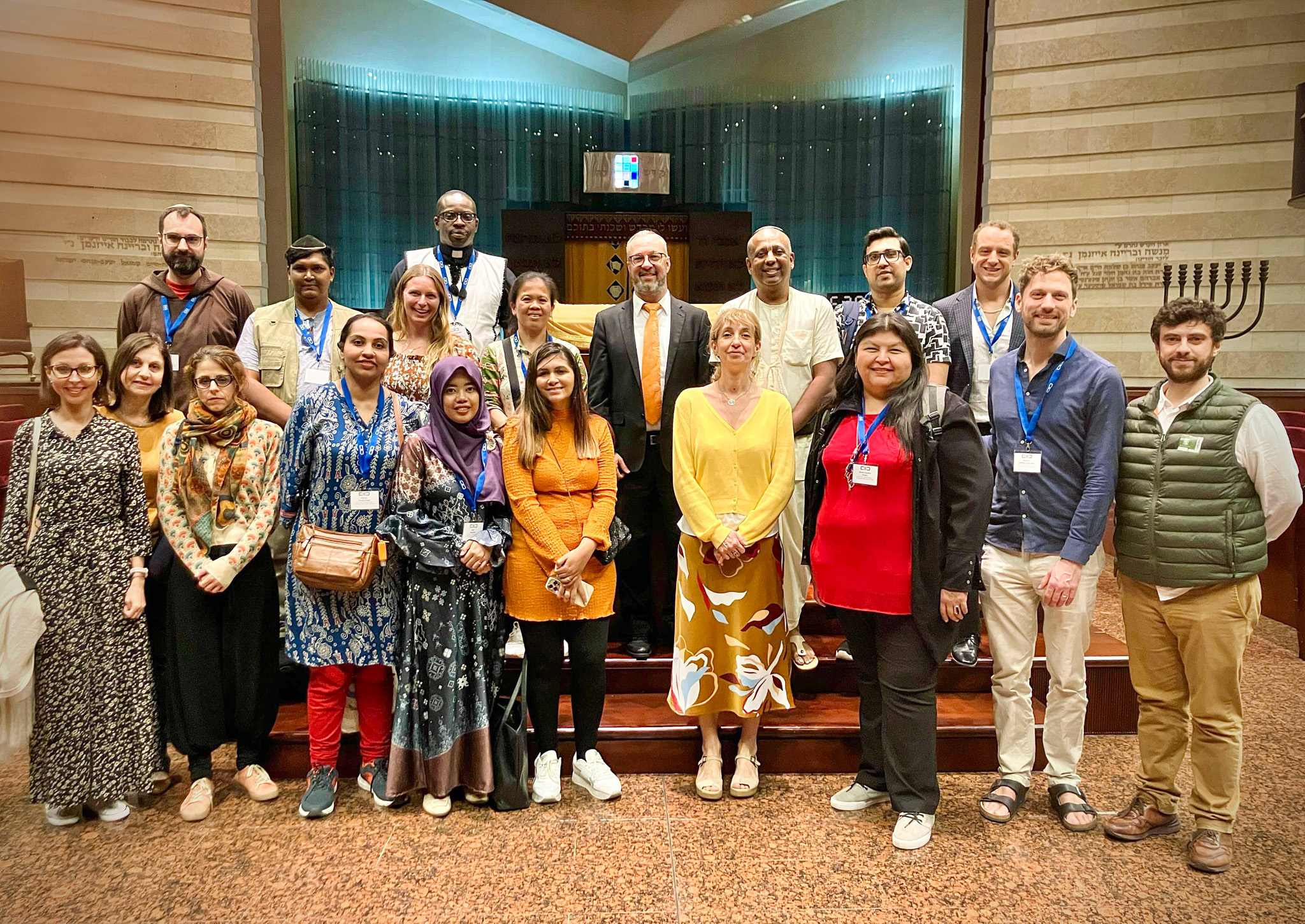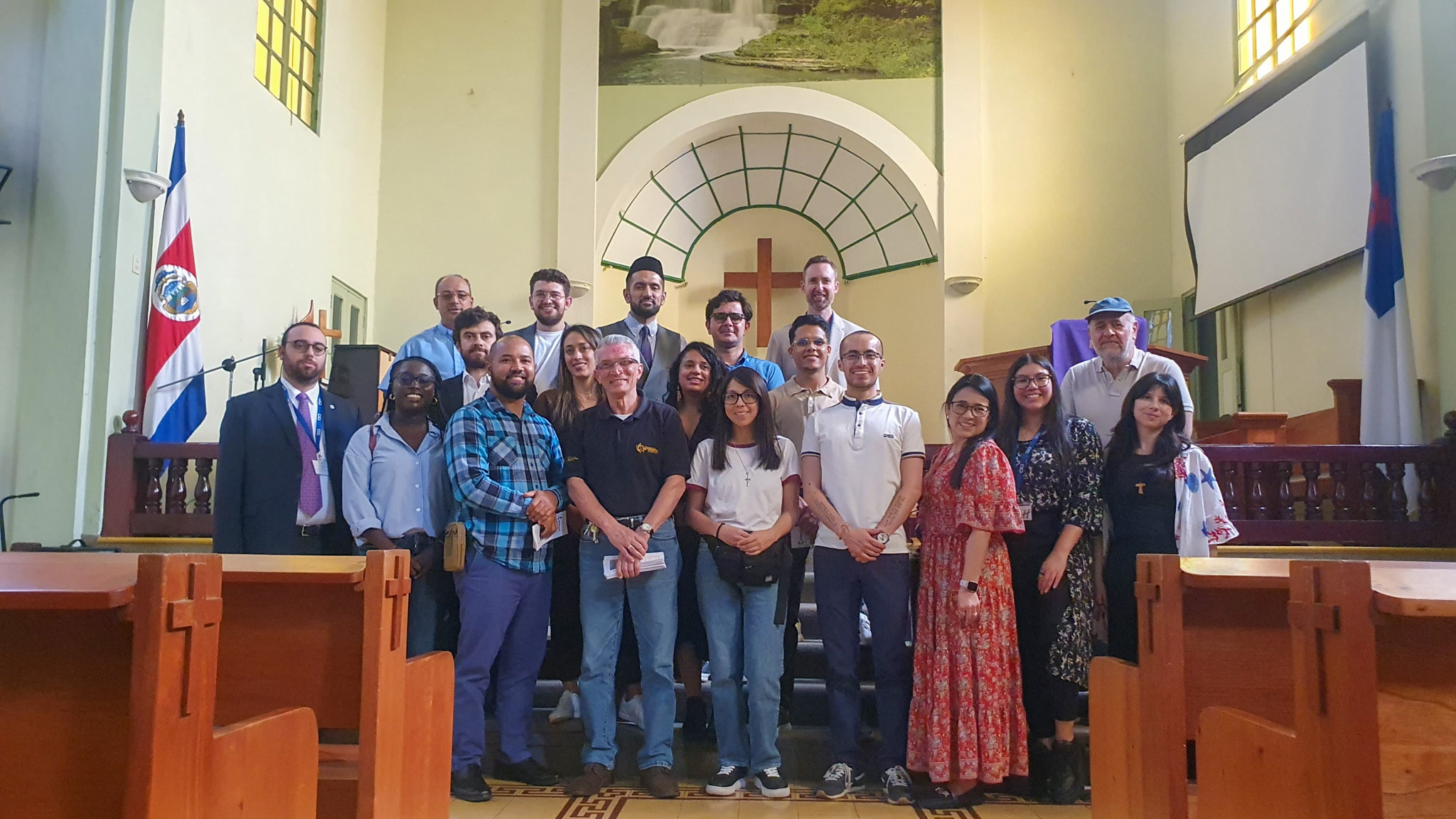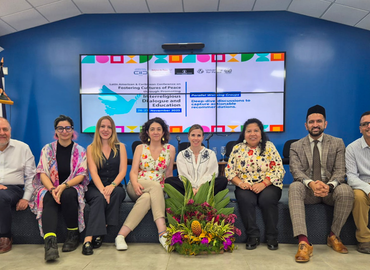Empowering Dialogue for Peace: Insights from KAICIID's 2024 Fellows Programme in Costa Rica
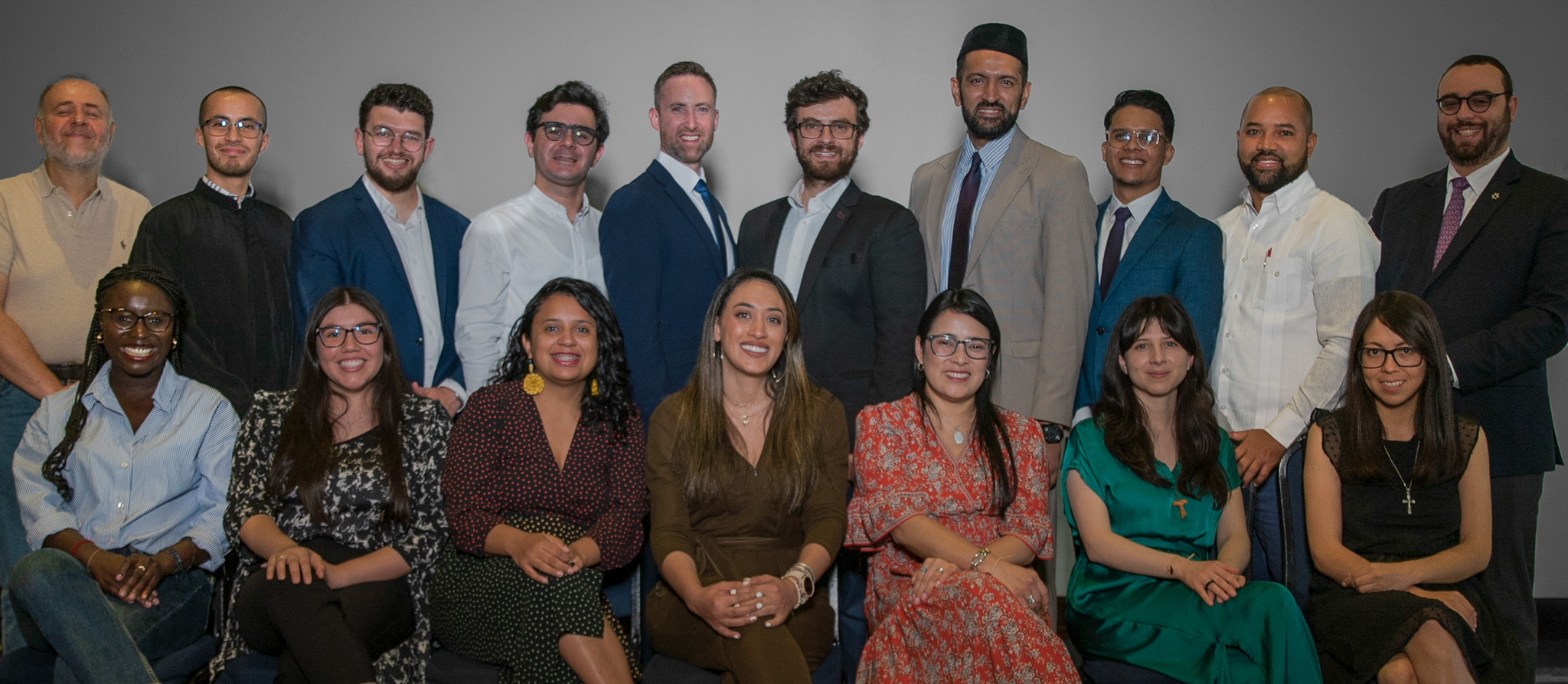
In the serene surroundings of Costa Rica, a unique assembly of minds converged under the banner of the International Dialogue Centre – KAICIID Fellows Programme, embarking on a transformative journey of dialogue and peacebuilding. KAICIID's Fellows Programme renowned for its commitment to interreligious and intercultural understanding, brought together its Latin American and International cohorts for an immersive training session. This year’s first training cycle, held from 29 January to 4 February for the Latin America Cohort, and from 2 to 8 February for the International Cohort, marked a significant milestone in the programme's history, showcasing a unique strategic partnership with the University for Peace, the only institution within the United Nations system dedicated exclusively to peace education.
The Fellows Programme launched in 2015, has trained over 550 community and religious leaders from over 100 countries to address challenges like hate speech and extremism, emphasizing inclusivity and impact in education, dialogue advocacy, and social cohesion. The Programme’s objective is to foster peace through interreligious and intercultural dialogue, equipping fellows from diverse religious backgrounds with necessary skills to navigate the complexities of ever increasing globalized and multicultural societies. The curriculum includes intensive training on interreligious dialogue (IRD), dialogue facilitation, and project sustainability, aiming to mainstream interreligious dialogue in various institutions and communities.
The training sessions held at the University for Peace aimed to enhance dialogue skills, foster partnerships, and empower communities for peace. It involved diverse stakeholders and collaboration with the Religions for Peace - Latin America and the Caribbean for the Latin American Cohort. The training sessions unfolded in vibrant exchange of ideas and practices, focusing on interreligious dialogue's pivotal role in conflict resolution. Participants delved into the intricacies of “Principles for Interreligious Dialogue," "Dialogue Zones," “Role of Religious Leaders in Peacebuilding,” “Identity and Culture,” and the art of "Compassionate Listening," among other critical topics.
This curriculum was not just about theory; it was a hands-on approach to fostering social cohesion and resilience in the face of contemporary challenges by visiting religious and cultural landmarks in San Jose, Costa Rica, such as the Orthodox Jewish Cultural Centre of San Jose, Omar Mosque and Islamic Cultural Centre, a Methodist church and the Metropolitan Cathedral of San Jose. This was a great opportunity for the Fellows to learn about the diversity within, and the history of Costa Rica.
The visit to the Costa Rican Ministry of Foreign Affairs, coupled with participation in the Interfaith Harmony Week, the Fellows meeting with the Minister of Foreign Affairs and the joint fellowship session, offered a distinctive opportunity. It significantly enhanced the visibility of both the Fellows and KAICIID in the region and fostered stronger relationships with key stakeholders.
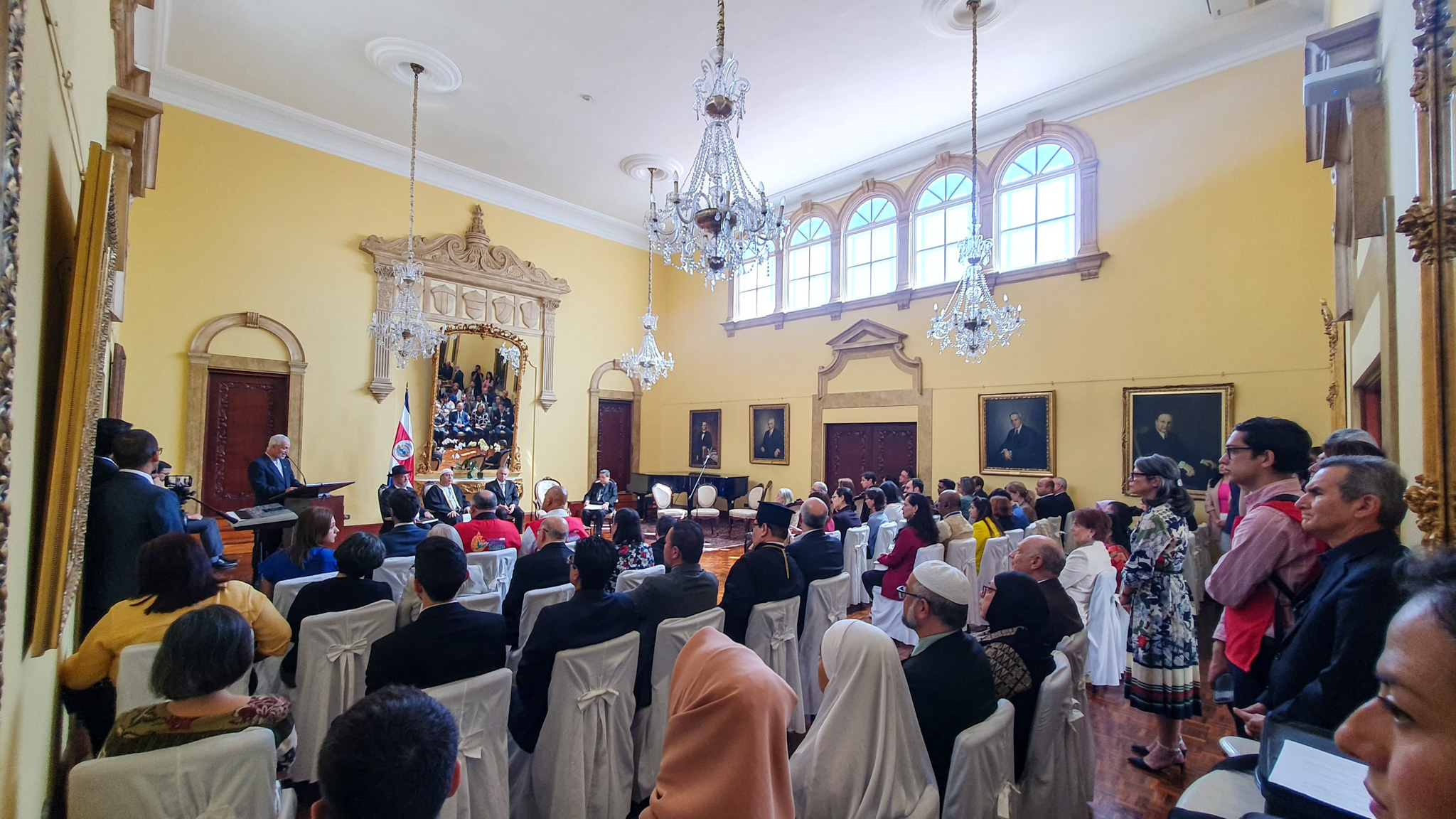
A participant from the Latin American cohort reflected on the experience: "This programme is more than an educational experience; it's a journey of personal transformation. Engaging with diverse stakeholders has broadened my perspective and strengthened my resolve to contribute to social cohesion in my community." He added on saying, “This training has reshaped my understanding of dialogue as a tool for peace. The diversity of perspectives and the depth of discussions here have been truly enlightening."
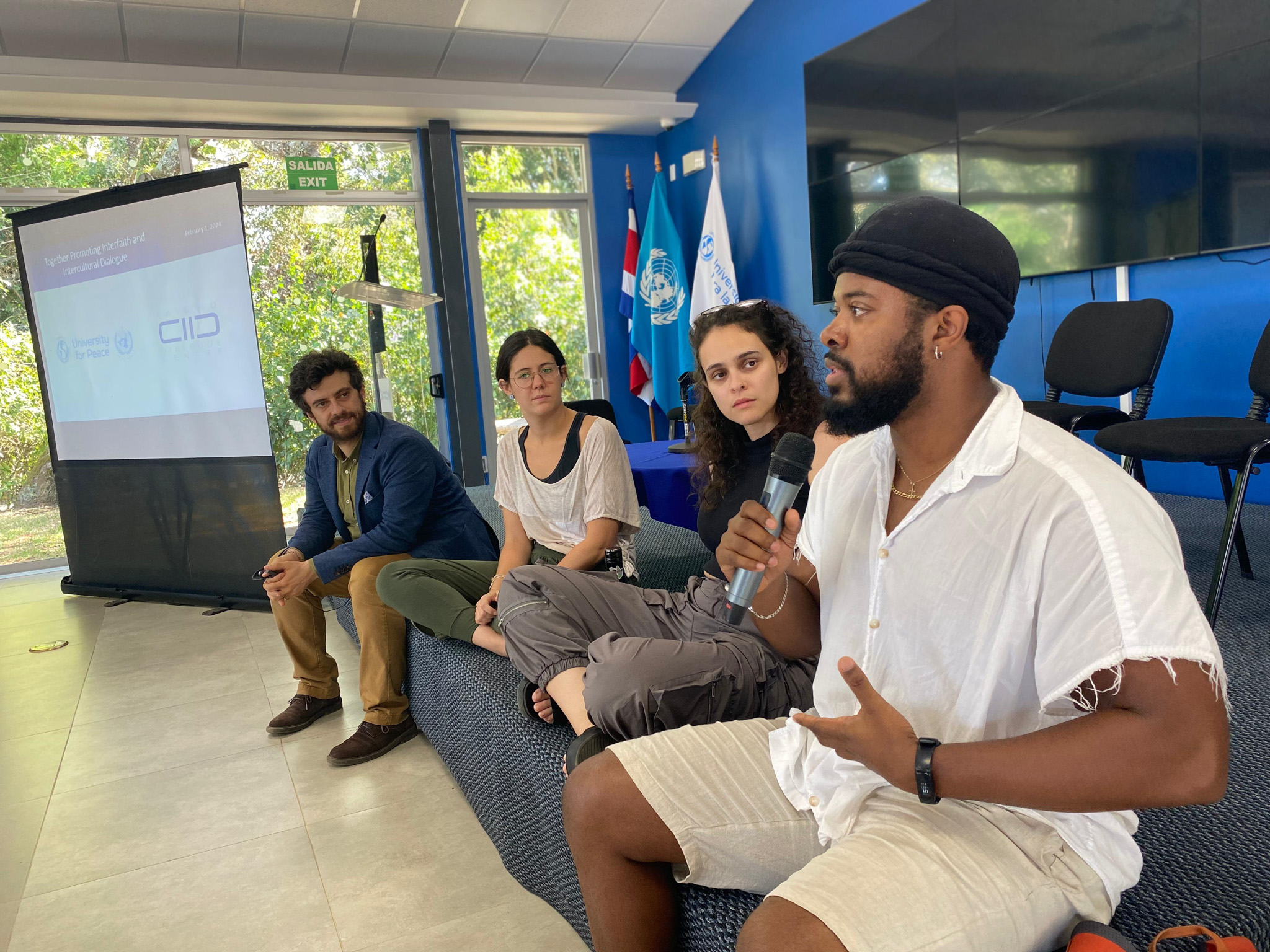
Another fellow, representing the international cohort, shared, "The collaborative atmosphere and the focus on practical skills, like proposal writing and results-based management, have equipped us to make tangible impacts in our communities.” She added, " The collaboration with the University for Peace is not just about location; it's about tapping into a reservoir of knowledge that complements our mission of fostering peace through dialogue, highlighting the symbiotic relationship between the two entities.”
The strategic alignment with the University for Peace was more than just a venue choice; it was a deliberate effort to leverage the academic environment's rich expertise. This collaboration signifies a commitment to nurturing a long-term relationship between KAICIID and the institution, aiming to enhance the quality of training and foster deeper partnerships.
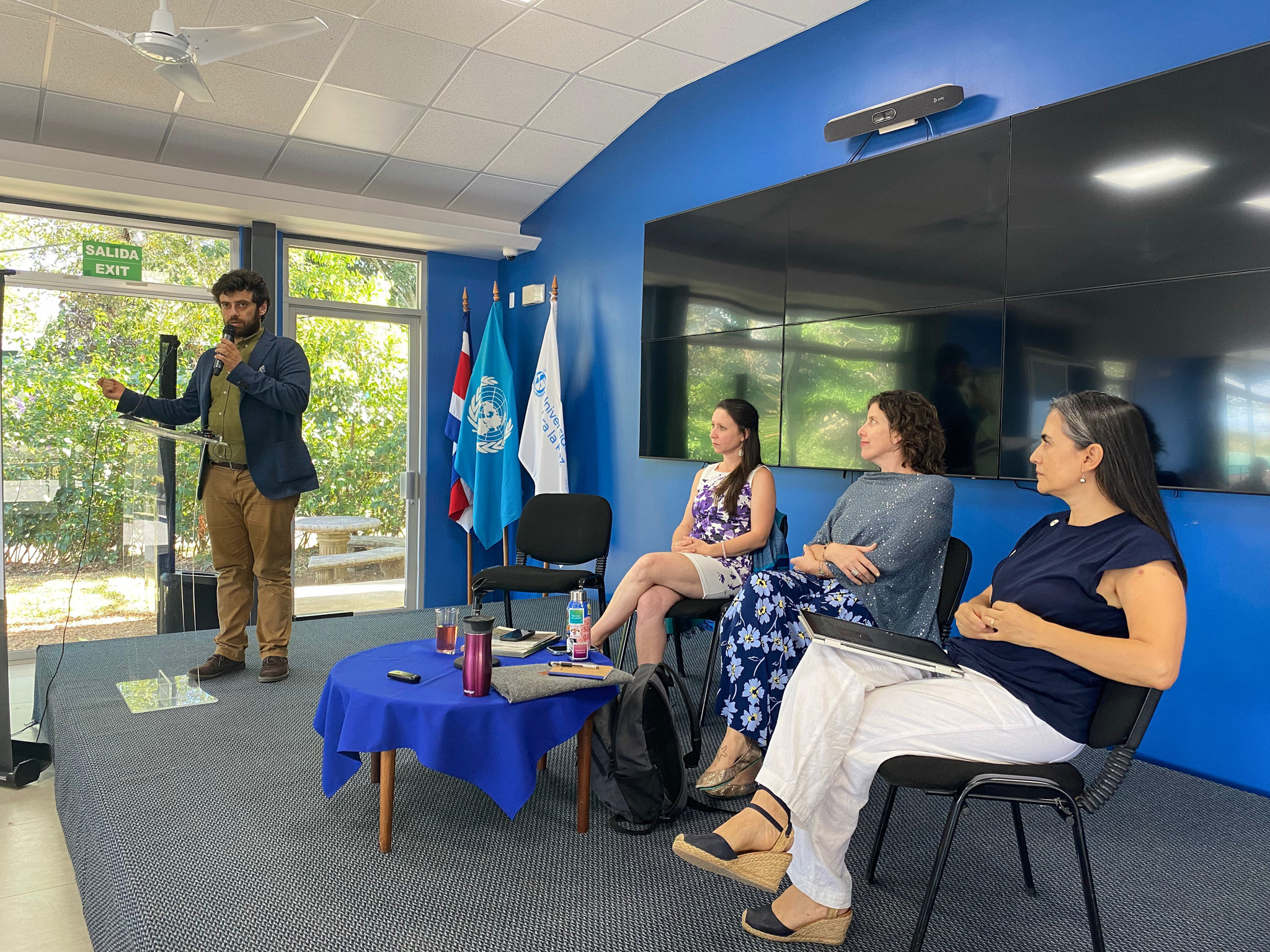
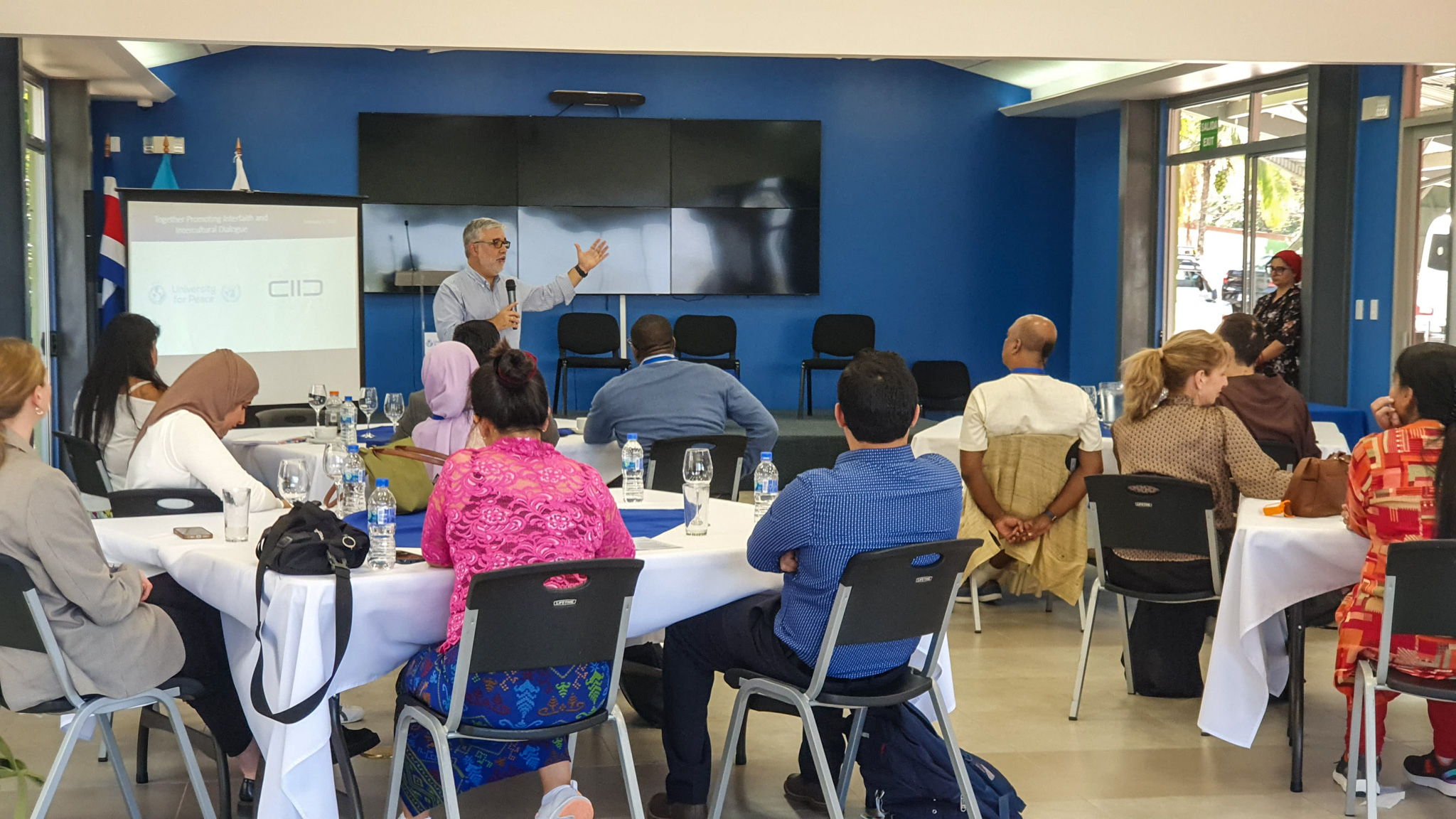
The KAICIID Fellows Program, with its holistic approach to capacity development and networking, has once again demonstrated its pivotal role in nurturing leaders dedicated to fostering peace through dialogue. As the 2024 fellows returned to their communities, they carried with them not just enhanced skills but a renewed commitment to bridge divides and build a more harmonious world.
The impact of the training extended beyond individuals, aiming to mainstream interreligious dialogue in various religious and educational institutions. It fostered a network of advocates committed to KAICIID's mission, especially in regions marred by conflict and division. The 2024 training in Costa Rica stands as a testament to the power of collaboration in the pursuit of peace, setting a precedent for future initiatives in the KAICIID Fellows Program.
